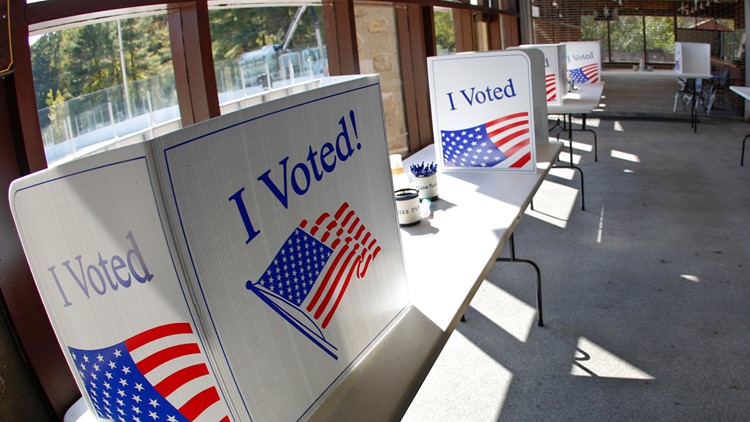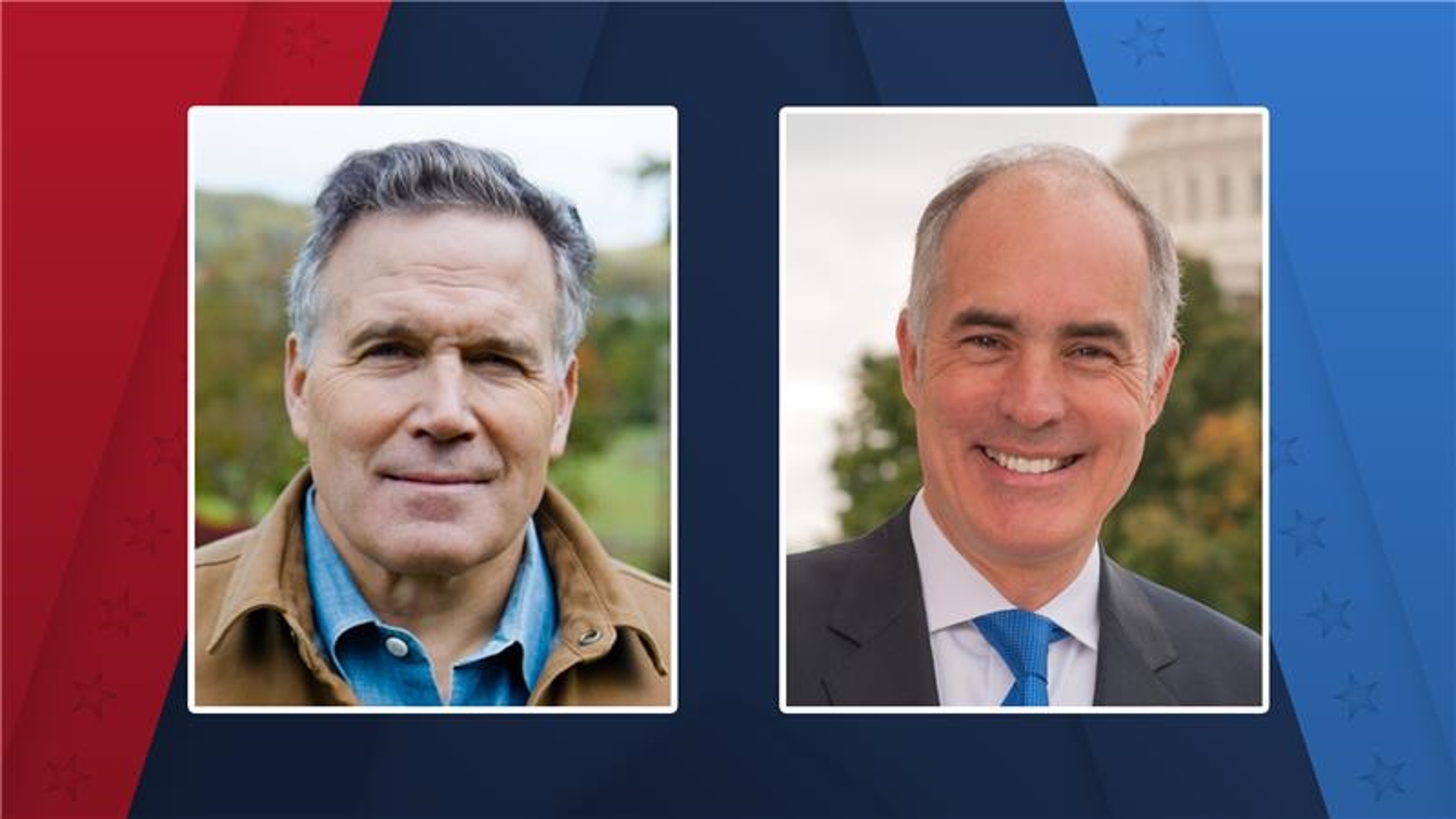HARRISBURG, Pa. — Pennsylvania is considering changing the state's 2024 presidential primary to an earlier day, although the proposed move may do little to give the state’s voters more say in deciding presidential nominees.
State lawmakers advanced legislation Wednesday through a Senate committee to change Pennsylvania’s primary from April 23 to March 19, but lawmakers warned that they are not done deciding on a new date or considering the views of county election clerks and the national parties.
The state is a premier battleground in presidential elections, but it hasn’t hosted a competitive presidential primary since 2008, when Hillary Clinton pulled off a win to stay alive against Barack Obama, the leader in delegates and eventual winner of that year’s Democratic nomination.
For now, President Joe Biden faces a couple of Democratic challengers, but is expected to secure his party’s nomination, while former President Donald Trump and Florida Gov. Ron DeSantis have dominated the early Republican race in a field that is about a dozen deep.
Under current law, Pennsylvania’s presidential primary date is the fourth Tuesday in April, which lands on April 23 next year.
Many states want to hold presidential primaries earlier, to give residents more influence on the trajectory of presidential campaigns. But Pennsylvania lawmakers have long resisted a change because it would push the beginning of the state's customary 13-week primary season into the winter holidays.
The Senate bill’s sponsor has long pushed to hold Pennsylvania's primary earlier, before presidential candidates have all but locked down the delegates they need to win the nomination.
By March 19, a candidate could lock up the delegates necessary to win the nomination, or at least put the contest out of reach.
In an interview, Sen. David Argall, R-Schuylkill, acknowledged that moving the primary to March 19, or any date after that, still leaves many states with large numbers of delegates before Pennsylvania, including Super Tuesday primary states on March 5.
This year, more lawmakers are motivated to support a change because April 23 is the first day of Passover, a Jewish holiday when observant Jews typically avoid the same activities they avoid on the Sabbath, such as driving, working or using electricity.
Gov. Josh Shapiro, who is Jewish, has said he supports changing the date, as well.
The state’s Democratic Party chairman, Sharif Street, said both national parties are encouraging Pennsylvania to choose April 2 to create a regional primary election with nearby states, and their structure of awarding delegates carries incentives to pick that date.
“That is the date that is more consistent with where the national parties would like us to be, both parties, in order to create a regional primary,” Street said.
A regional primary structure, Street said, eases travel by candidates and creates more opportunities for retail campaigning by candidates for president.
However, county election personnel organizations have told lawmakers that Holy Week — the week between Palm Sunday and Easter, the most sacred time of the year for millions of Christians — will complicate a primary date on April 2 or in late March, said state Sen. Amanda Cappelletti, D-Montgomery.
April 2 is the first Tuesday after Easter.
Many polling places are located in churches and Holy Week could pose a problem for getting election machines into churches and materials to polling place personnel, Cappelletti said.
Those organizations prefer moving the primary to April 9 or April 16, Cappelletti said.
March 19 is the same primary date as in Ohio, Florida, Illinois, Kansas and Arizona. Still, that date comes after primaries in other major states, including California, Texas, Georgia, Michigan, North Carolina, Virginia, Massachusetts and Tennessee.
Many state lawmakers oppose moving Pennsylvania's primary date to March 19, because that would force them and other candidates to start gathering signatures on their re-election petitions the week before Christmas, Argall said.
Moving it to March 26 is also under discussion.
Under those scenarios, Pennsylvania would leap over Delaware, Rhode Island and Wisconsin, whose primaries are scheduled for April 2. Lawmakers in New York passed legislation in June setting that state's primary on April 2, although it has yet to be signed by Gov. Kathy Hochul.
Separately, a House bill expected to get consideration would move Pennsylvania's primary date to April 2.
That would allow lawmakers and other candidates to start gathering signatures on their re-election petitions the day after New Year's Day, the bill's sponsor, Rep. Malcolm Kenyatta, D-Philadelphia, said.



